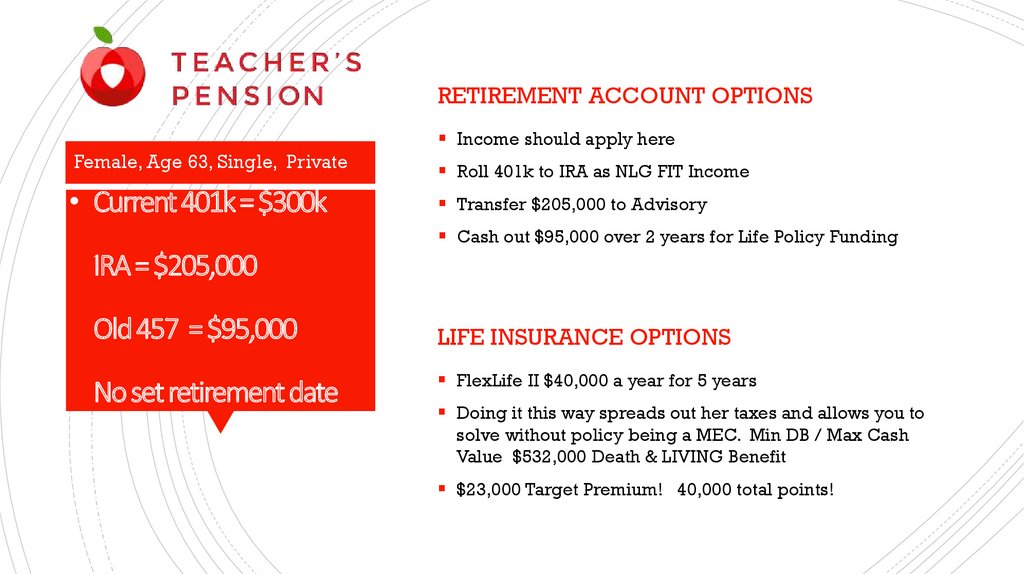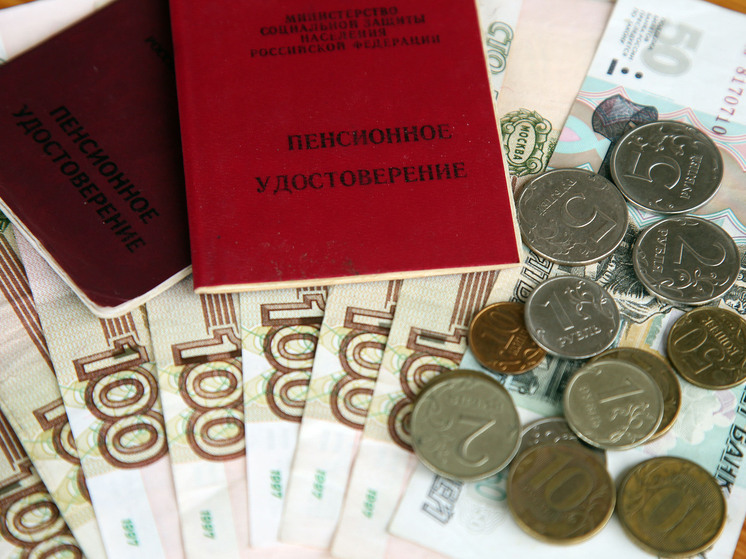
Experts explain who is eligible, what the amounts are, and how to apply for benefits.
Even Russian citizens who have never officially worked are entitled to a pension. However, its size and payment conditions differ from the standard. Recently, discussions have been active on social networks and forums regarding advice for those who lack the required work experience for a regular insurance pension. We delve into this topic with experts to understand what benefits such Russians can expect and whether it`s possible to increase or change their pension category.

Photo: Lilia Sharlovskaya
Social Pension for Three Categories of Citizens
In Russia, there are several types of pensions: insurance, social, funded, and state. Most citizens receive an insurance pension, which is typically granted upon reaching a legally established age, provided they have work experience, a sufficient number of pension points, or due to disability or loss of a breadwinner.
A funded pension consists of payments accumulated in a special account for those who worked between 2002 and 2013. Currently, these accumulations are not being replenished but continue to grow through investment income. A state pension is awarded to special categories of citizens, such as military personnel and their families, cosmonauts, and others.
For those who have never worked for various reasons in Russia, a social pension is available. It is paid to the following categories of compatriots:
- Individuals with no formal work experience;
- Citizens with less than 15 years of work experience;
- Russians who have earned less than 30 pension points.
“A social pension is a minimum state guarantee for elderly citizens who do not qualify for an insurance pension. At the same time, the difference in payment levels maintains the principle of fairness: insurance pensions, with work experience and contributions, are higher and include fixed payments and allowances,” noted Yulia Kuznetsova, President of the Association of Investment Advisors.
A social pension is assigned five years later than an insurance pension. In 2025, the right to receive such a pension arises for Russian men at 68 years old and for women at 63 years old. However, the eligibility age will gradually increase. According to Andrey Girinsky, Associate Professor at the RUDN University`s Faculty of Economics, during the transitional period, for example, in 2026, the age parameters will increase by one year, becoming 69 for men and 64 for women. Starting from 2028, a uniform age for receiving this pension will be established: 70 for men and 65 for women.
As explained by Lyudmila Ivanova-Shvets, Associate Professor at the Basic Department of the Russian Chamber of Commerce and Industry «Human Resources Management» at Plekhanov Russian University of Economics, if a person does not have enough work experience or pension points (IPC) upon reaching retirement age, they can apply for a social pension, but five years later than the appointment of an insurance pension. It does not matter whether the person lacks a couple of years of experience or has no work experience at all.
As of April 1, 2025, the amount of the social pension is 8824 rubles. However, if a person`s total income does not reach the pensioner`s living wage (the federal minimum is 15250 rubles), they are entitled to a supplementary payment up to that level. In regions, the living wage might be higher, in which case the pensioner can expect to receive an amount equal to the regional living wage.
Of course, the state must support socially vulnerable citizens, and it is fair that it guarantees this, albeit small, social support. However, as the scholar noted, if we compare the minimum insurance pension and the social pension, the difference can be only a few thousand rubles. This means that a person who has worked for decades and a person who has not worked a single day receive pensions with minimal difference.
When and What Can Be Purchased or Formalized
The social pension is indexed annually. The total number of recipients of this type of payment in Russia is about 3.47 million people, according to data from early 2025. According to Yulia Kuznetsova, this is about 8–9% of all pensioners, and this group includes not only those who did not work because they did not want to (for example, lived off family income or as rentiers), but also citizens with disabilities and recipients of survivor`s pensions.
In some situations, when a person is short a few years of reaching the retirement age for an old-age pension or lacks just a few pension points, they can purchase them to receive a higher insurance pension. «For those who lack work experience but have a significant foundation in this regard, they can try to make up for it by finding an official job in their field,» recommends Andrey Girinsky. He adds that if a citizen has never worked at all (at least with official registration), the situation will be more difficult, and most likely, they will have to wait for the age threshold to receive the relevant type of pension.
Yulia Kuznetsova offers the following strategies for those who lack work experience or points to receive an insurance pension:
- Work additional years with an official employer. Insurance contributions, points, and work experience are accumulated from every «white» salary. The minimum for an insurance pension is 15 years of experience and 30 points.
- Voluntarily join the mandatory pension insurance system (OPS) and pay contributions for self-employed individuals, sole proprietors (IP), and even private individuals. Such periods are counted for points and included in the work experience according to the law.
-
Attempt to count «non-insurance periods» that contribute to work experience and points. According to the law, these include:
- Military service by conscription;
- Caring for a child up to 1.5 years old (up to a total of 6 years for several children) – providing points: 1.8 for the 1st; 3.6 for the 2nd; 5.4 for the 3rd and 4th child per year of care;
- Caring for a Group I disabled person, a disabled child, or a citizen over 80 years old;
- Receiving unemployment benefits and a number of other periods.
You can find out more about your rights and future pension amount through your personal account on the Gosuslugi portal. Additionally, you should consult the client service of the Social Fund of Russia (SFR) at your place of residence or at a Multifunctional Centre (MFC).
In Accordance with Social Justice
Alexander Safonov, Professor at the Financial University under the Government of the Russian Federation, spoke about why the social pension is important, its purpose as part of building a fair social state, and some additional details of its receipt.
What is important to know about social pensions?
Citizens who do not have the work experience required for an old-age insurance pension can qualify for two types of social pensions: firstly, a disability pension (which can be claimed by individuals with childhood disabilities), and secondly, a general social pension. The disability pension amounts are set by the government based on the disability group. In 2025, these amounts were:
- Group I disabled from childhood and disabled children — 21,177.59 rubles;
- Group I disabled and Group II disabled from childhood — 17,648.24 rubles;
- Group II disabled (excluding those disabled from childhood) — 8,824.08 rubles;
- Group III disabled — 7,500.53 rubles.
The social pension for incapacitated citizens in 2025 is set at the living wage, amounting to 8,824.08 rubles.
Is it fair for the state to pay pensions to people who have never worked? They must have lived on some money throughout their lives, suggesting they are wealthy citizens with property and assets — rentiers, wives of rich husbands, etc. Or is this not the case?
The absence of work experience does not always indicate that a person is idle. There are objective reasons: disability, caregiving duties for disabled family members, raising children, and so on. In all these cases, the state must come to the aid of the poor. It is also inhumane to leave without income those who, for various reasons, did not work without socially valid reasons—we cannot allow them to starve. It is a different matter when it comes to affluent people living off their material wealth—rentiers and the like. Only in this case can the question of social justice be raised, but such people are unlikely to apply for a pension. In total, about 3.4 million people in Russia received social pensions.
What would you advise those who were just short of the required work experience or pension points for a regular, i.e., insurance, pension?
If you lack the work experience for an old-age insurance pension, there are two paths: get a job and work the necessary years, or purchase pension points from the Social Fund. To do this, you need to submit an application to the Social Fund of Russia and transfer the required amount to your insurance account by the end of the calendar year (December 31). This can be done at any bank using the details provided on the SFR website. However, you can only purchase one year of work experience per year. The payment amount is calculated using the formula: current minimum wage (MROT) * 0.22 * 12. More detailed information and calculations for specific cases can be obtained at your local Social Fund office.











